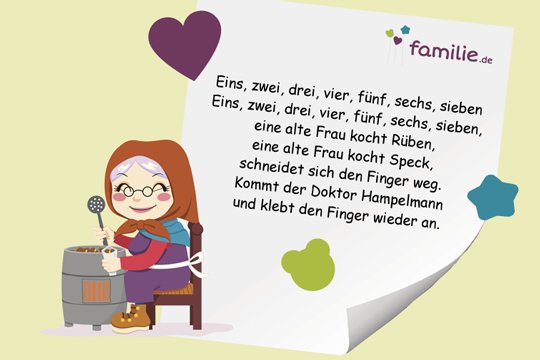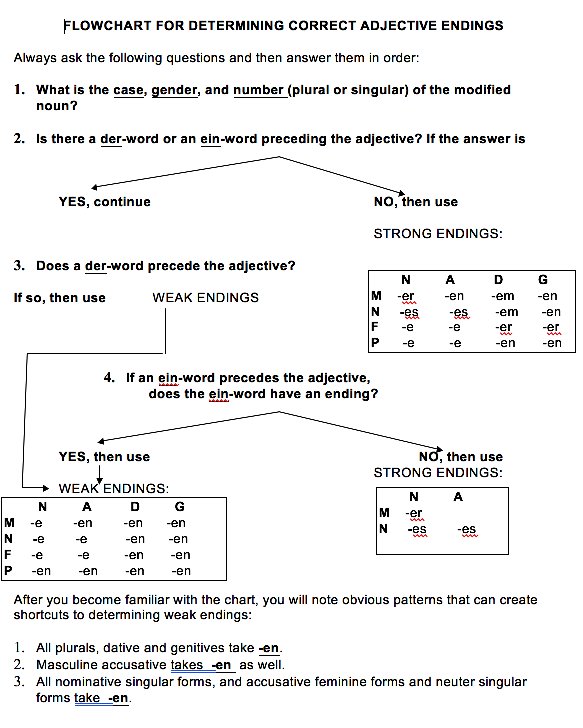| Seite 1 |
Kapitel 12: Literatur, Kunst, und Musik
Most of the readings up to now present information directly through a variety of "texts" A text is understood in the broadest sense, and may include any words, images, or symbols that convey content. So a map, an advertisement, a video, as well as written words are included in the concept of a text. Literature, art, and music aim primarily not to inform, but rather to stimulate the imagination and emotions, to entertain, and to edify. In order to experience the benifits of the arts, the reader must learn to interpret the work of art and to appreciate the beauty of language, sounds, and images.
The two following texts describe stormy weather and offer a comparison between direct, informational language and a poetic rendering.
|
Wetterbericht
GEWITTER/STARKREGEN: Heute im Norden und Nordosten, außerdem von Nordrhein-Westfalen bis nach Hessen, Rheinland-Pfalz und dem Saarland und vom Bodensee bis zum Alpenrand auflebende Gewitter. Dabei Starkregen um 20 l/qm in kurzer Zeit, kleiner Hagel und stürmische Böen um 65 km/h (Bft 8) möglich, vereinzelt geringe Wahrscheinlichkeit für Unwetter durch heftigen Starkregen um 30 l/qm in kurzer Zeit. | STORM/HEAVY RAIN: Today strengthening storm conditions in the North and Northeast, also from Northrhine-Westphalia to Hessen, Rhineland-Palatinate, and Saarland, and from Lake Constance to the edge of the Alps. Severe rain with approximately 20 liters per square meter in a short time, small hail, and stormy wind gusts of around 65 kilometers per hour are possible. In places a small probability for stormy conditions with powerful heavy rain with around 30 liters per square meter in a short time. |
|
Eingehüllt in graue Wolken, Schlafen jetzt die großen Götter, Und ich höre, wie sie schnarchen, Und wir haben wildes Wetter.
Wildes Wetter! Sturmeswüten
Kanns nicht hindern, daß es stürmet, Heinrich Heine (1797 - 1856) |
Wrapped in gray clouds, The great gods sleep now, And I hear how they snore, And we have wild weather.
Wild weather! Raging storms
Cannot prevent it from storming, |
Obviously, Heine's poem evokes the violence and danger of the raging tempest through sounds and images that stage a drama in which the poet plays a personal role. The translation cannot capture the linguistic beauty -- the cadences, the sounds, the selection of words -- of the German. Moreover, a weather report occupies a specific event at a limited time and in a defined space, whereas the poem extends to all times and places. Readers should also find a message rather than information. These and many more considerations make works of art the pinnacle of language and the quintessence of a culture.
Still, this chapter offers merely a general introduction to literature, art, and music in the German-speaking cultures using a very limited selection of "texts". As much as possible, the readings will be integrated with exercises to expand proficiency in reading, listening, writing, and speaking German. Skills in interpretation require a level of linguistic competence beyond the scope of this course.
"Ernste Stunde"
Wer jetzt weint irgendwo in der Welt,
ohne Grund weint in der Welt,
weint über mich.
Wer jetzt lacht irgendwo in der Nacht,
ohne Grund lacht in der Nacht,
lacht mich aus.
Wer jetzt geht irgendwo in der Welt,
ohne Grund geht in der Welt,
geht zu mir.
Wer jetzt stirbt irgendwo in der Welt,
ohne Grund stirbt in der Welt:
sieht mich an.
Rainer Maria Rilke (1875 - 1926), "Ernste Stunde", appears in Das Buch der Bilder, first published 1906.
Rilke is one of the most famous literary figures in German literature.
He was an Austrian poet known for his intense lyricism and mystical imagry.
Rilke in Wikipedia
Übung 12-1a. Schreiben Sie ein Gedicht! Partnerarbeit. Make sure you umderstand all the words in Rilke's poem.
Continue the verses of the poem above by
substituting the verb in each stanza with another German verb. Then create a third line in a similar mode as the third lines in the poem.
Refer to the list of strong verbs on Seite 9-11 to get some ideas to start.
Beispiel: Wer jetzt schläft irgendwo in der Nacht / ohne Grund schläft er in der Nacht / träumt von mir.
Übung 12-1b. Haiku schreiben! Arbeiten Sie mit einer Partnerin / einem Partner. Sie sind Dichter/in! Ein Haiku ist ein japanisches Gedicht. Es besteht aus 17 Silben in drei Zeilen: fünf Silben in der ersten Zeile, sieben in der zweiten, und fünf in der dritten. Bei den besten Haikus soll die letzte Zeile das ganze Gedicht zusammenfassen.
Hier einige Beispiele:
Familie:
Vierzehn Jahre alt,
Blaue Augen, schwarzes Haar:
Das ist mein Bruder.
Hobbies:
Fußball, Volleyball,
Tennis, Schwimmen, Federball:
Ich treibe gern Sport.
Studium:
Erdkunde, Bio,
Mathe, Englisch und Physik:
Schule macht mir Spaß.
Shopping:
In dem Supermarkt:
Butter, Käse, Fleisch und Brot --
Ich habe alles gekauft.
Kinderreime und Kinderverse
Kinderreime sind in vielen Kulturen die erste Literatur, die Kinder lernen. In Deutschland lernen fast alle Kinder Verse und Lieder im Kindergarten und sie bleiben noch das ganze Leben im Gedächtnis. Darum sind sie ein wichtiger Bestandteil der Kultur. Die meisten Kinderreime sind traditionelle Verse von anonymen Autoren.
Hier sind ein paar Beispiele:
|
Backe, backe, Kuchen, der Bäcker hat gerufen! Wer will guten Kuchen backen, der muss haben sieben Sachen: Eier und Schmalz, Butter und Salz, Milch und Mehl, Safran macht den Kuchen gehl! Schieb, schieb in'n Ofen 'nein.
|
Heile, heile Segen sieben Tage Regen, sieben Tage Sonnenschein, wird alles wieder heile sein. Heile, heile Segen, sieben Tage Regen, sieben Tage Schnee, tut dem Kind schon nicht mehr weh.
|
Hoppe, hoppe, Reiter, wenn er fällt dann schreit er. Fällt er in den Graben, fressen ihn die Raben. Fällt er in die Hecken, fressen ihn die Schnecken. Fällt er in den Sumpf, macht der Reiter: plumps!
|
|
Piep, Piep, Mäuschen, bleib in Deinem Häuschen. Frisst du mir mein Butterbrot, kommt die Katz' und beißt dich tot. Piep, Piep, Piep, recht guten Appetit |
Morgens früh um sechs kommt die kleine Hex'. Morgens früh um sieben kocht sie gelbe Rüben. Morgens früh um acht wird Kaffee gemacht. Morgens früh um neun geht sie in die Scheun'. Morgens früh um zehn holt sie Holz und Spän', feuert an um elf, kocht dann bis um zwölf: Fröschebein' und Krebs und Fisch. Hurtig, Kinder, kommt zu Tisch! |

|
Übung 12-1c. Kinderreime lesen Arbeiten Sie mit einer Partnerin / einem Partner. Lesen Sie die deutschen Kinderreime laut, bis Sie die Reime im Singsang sprechen können.
Video-Link: Kinderreime
Review: Adjective Endings
Übung 12-1d: Adjektivendungen-Video. Aufgabe in BOLT.Adjektivendungen
Descriptive adjectives in German require endings. These are NOT predicate adjectives, which have no endings: Der Mensch ist gut. Das Wetter bleibt schlecht, rather: Er ist ein guter Mensch. Wir haben schlechtes Wetter. In the latter examples, the adjectives have endings, -er and -es respectively.
Adjective endings tend to be baffling to native speakers of English, but that need not be so. In fact, German adjective endings is the only grammatical set of rules in German that have NO EXCEPTIONS. Learn the rule, never wrong.
You need to know what "ein-words" and "der-words" are.
- An "ein-word" includes all forms of "ein" (eine, ein, einem, einen, eines, einer...), "kein", and possessive adjectives "mein, dein, sein, ihr, unser, euer, Ihr".
- The "der-words" are all definite articles (der, die, das, den, dem, des) and the group of words meaning "every, which, such a, many a" and others: jede Frau = "every woman", welcher Wein? = "Which wine?", solche Probleme = "such problems", manche Kosten = "many costs".
When there is an "ein-word" or a "der-word" in front of the adjective, then the adjective ending is either "-e" or "-en", depending on the case and gender.
The hard part is that you need to know the gender, case, and number of the noun. Once that is established, it is just a formula.

Übung 12-1e: Adjektivendungen. Im BOLT.
- Wie war Professor Schmidts Vorlesung heute: langweilig oder interessant?
- Es war ein____ interessant____ Vorlesung.
- Nein, Es war heute ein_____ langweilig____ Vorlesung.
- Wie war der Film im Deutschkurs: lustig oder ernst?
- Es war ein____ lustig____ Film.
- Nein, es war ein____ ernst____ Film.
- Wie war das Essen in der Mensa heute: gut oder schlecht?
- Es war ein____ gut____ Essen heute in der Mensa.
- Nein, es war ein____ schlecht_____ Essen in der Mensa.
- Wie war der Kaffee heute: stark oder schwach?
- Es war ein____ stark____ Kaffee heute.
- Nein, es war ein schwach____ Kaffee heute.
- Wie war das Referat im Geschichtskurs: lang oder kurz?
- Es war ein____ lang____ Referat im Geschichtskurs.
- Nein, es war ein____ kurz____ im Geschichtskurs.
- Waren die Studenten heute müde oder aktiv?
- Sie waren heute müd____ Studenten.
- Nein, sie waren heute aktiv____ Studenten.
- War der Seminarraum heute warm oder kühl?
- Es war ein____ warm____ Seminarraum.
- Nein, es war ein____ kühl____ Seminarraum.
- Heute habt ihr die neuen Bücher für nächstes Semester gekauft? Waren sie billig oder teuer?
- Sie waren billig____ Bücher.
- Nein, sie waren teur___ Bücher.
Übung 12-1f. Nochmal Adjektivendungen. Partnerarbeit.
Fill in the correct endings for "der" words, "ein" words and for adjectives.
Some words will require no ending, or there may be no "der" or "ein" word. Answer the questions after each German sentence.
Use the adjective ending chart to determine the correct forms.
If you do not know the gender of a noun or the meaning of a word, ask the instructor.
Plural is treated here as a "case".
Beispiel: Ein neuer Artzt verschieb dem kranken Mann Medikamente gegen die schweren Bauchschmerzen. →
- Gender and case of Arzt: masc. nom. Gender and case of Mann: masc. dat. Gender and case of Bauchschmerzen: pl. acc.
- Arzt is the subject (preceded with "ein", strong ending; Mann is the indirect object (dative case, preceded, weak ending), Bauchschmerzen is the object of acc. prep. "durch" (plural, preceded, weak ending)
- D___ jung_____ Nachbar sprach mit unser____ alt_____ Lehrerin.
- What it the gender and case of "Nachbar"? _________________________________________
- What is the gender and case of "Lehrerin"? ________________________________________
- Explain: _________________________________________________________________________
- Wir haben d____ neu____ Wein aus klein____ Gläsern getrunken.
- What it the gender and case of "Wein"? ______________________________________
- What is the gender and case of "Gläsern"? _______________________________________
- Explain: _______________________________________________________________________
- Die Kinder gingen durch ein_____ groß_____ Feld.
- What it the gender and case of "Feld"? ___________________________________________
- Explain: ________________________________________________________________________
- Dies____ verwöhnt_____ (spoiled) Kinder kommen aus reich_____ Familien.
- What it the gender and case of "Kinder"? __________________________________________
- What it the gender and case of "Familien"? ________________________________________
- Explain: ________________________________________________________________________
- Gut____, alt_____ Ralf! Welch ein____ treu____ Hund!
- What it the gender and case of "Ralf"? ___________________________________________
- What it the gender and case of "Hund"? ___________________________________________
- Explain: ________________________________________________________________________
- Waschen Sie d____ Gemüse mit kalt_____ Wasser!
- What it the gender and case of "Gemüse"? __________________________________________
- What it the gender and case of "Wasser"? _________________________________________
- Explain: ________________________________________________________________________
- Dies_____ Kneipe hat gut_____ billig_____ Bier.
- What it the gender and case of "Kneipe"? _________________________________________
- What it the gender and case of "Bier"? ___________________________________________
- Explain: ________________________________________________________________________
- Kai interessiert sich für exotisch______ Länder.
- What it the gender and case of "Länder"? _________________________________________
- Explain: ________________________________________________________________________